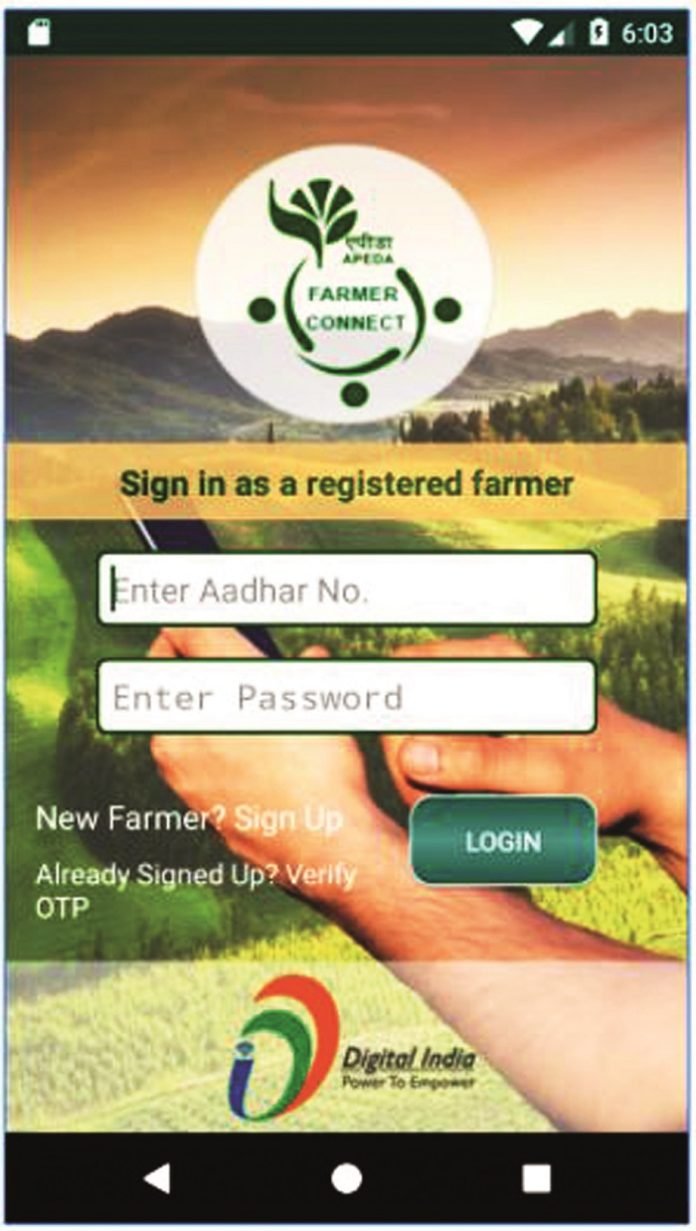Bearing the significance of track and trace, the Agricultural and Processed Food Products Export Development Authority (APEDA) has developed Hortinet, an integrated traceability system, to provide Internet-based electronic services to the stakeholders for facilitating farm registration, testing and certification of grapes, pomegranates and vegetables for export from India to the European Union (EU).
The major glitch which many exporters came across in the last decade was related to traceability. With the new systems in place, the produce can now be traced back to the farmer who is responsible for the produce. Tarun Bajaj, general manager, APEDA, initiated the proceedings and outlined the work of the mobile app concept and its evolution. In the past, APEDA had introduced TraceNet for organics, AnarNet and GrapeNet traceability software. The newly launched mobile app, Farmer Connect, is a giant leap in connecting the farmers through mobile networks for registration procedures from any location.
Using the mobile app, farmers can apply online and avail their farm registration, track the status of their application and approvals by the state government, and get lab sampling done by authorized laboratories. The app is expected boost the accessibility and reach of the traceability software system among the farmers and other stakeholders. It will also assist the state horticulture and agriculture department to capture the real-time details of farmers, farm locations, products and details of inspections, like the date of inspection and the name of the person inspecting directly from the field. After the registration and approval of the farm, the farmer gets approval information. Indian agriculture has a share of only 2.2% and is among the top 10 players in global agricultural trade. The efforts made by APEDA in promoting exports, especially through the use of traceability software, has
benefited Indian agricultural trade and ensured that importing countries get products of the quality and standards that they desire. The mobile app will also be made available on IOS system, apart from Android, and feature vernacular language options for better understanding.
Prashant Bumb, member of legislative assembly, Aurangabad and promoter of food clusters in Maharashtra says, “Many farmers who were growing tomatoes have been exporting fresh produce as well as processed foods like tomato purees and sauces. But these exports were only restricted to the markets of Sri Lanka, Bangladesh, Myanmar and Nepal as we have preferential trade agreements with these nations; exports to USA and EU markets will invite traceability systems to be installed at our factories. We have recently installed online inspection systems from Mettler Toledo for weighing and metal detection and others like Schneider for control of temperature and coding on labels for better traceability and server mechanisms.”
APEDA’s traceability system will set the ball rolling to simplify export procedures as Indian exports were always challenged at the point of entry at EU and USA. Also commodities like vegetables and fruits have seen major setbacks earlier, which can now enjoy smooth operations as products facilitated by APEDA will have to abide by traceability requirements like barcoding, serial codes, tags and labels, innovative markers and safety marks according to EU requirements. “Such developments will help aid farmers to boost income as they will enable the supply chain to adopt technology and spread the knowledge across the industry,” says Anil Sachdev of Ayush Impex.
The key features of the app are online farm registration application and status tracking, processing and approval on online farmer applications by the state horticulture and agriculture department, registration of farmers, farms and products by the state horticulture and agriculture department, capture geo-location of the farms registered through the app and sample collection by APEDA-authorized laboratories along with geo-location of the sample.










